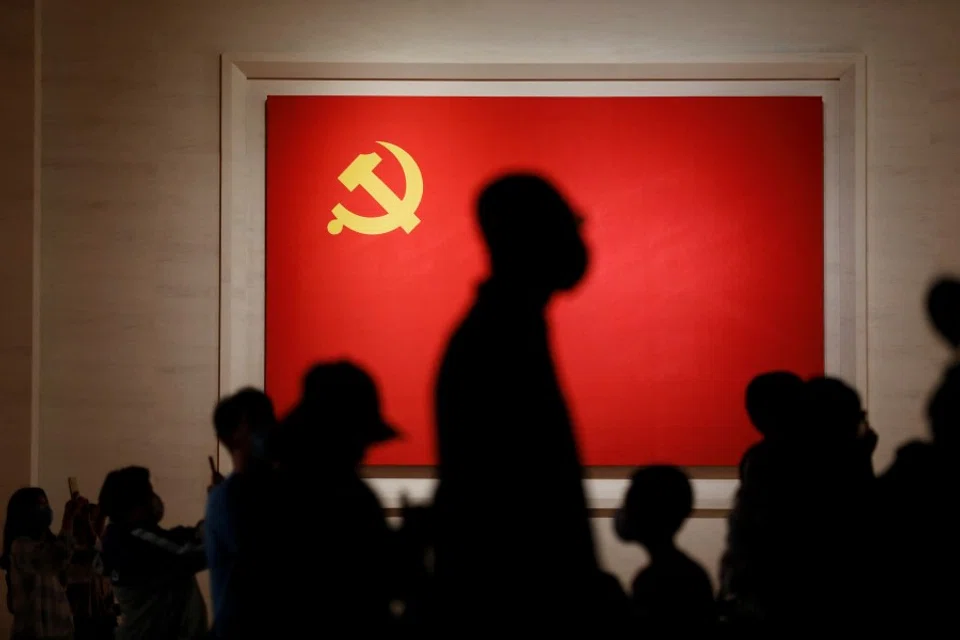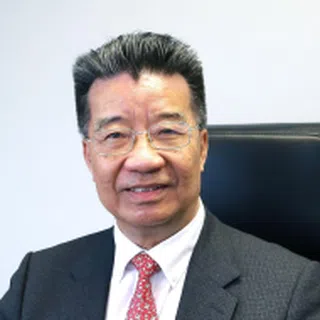China's far-left narratives are leading the country into a dead end
Commentator Lew Mon-hung notes that recent public opinion in China has been advocating a closed-door policy, sharply diverting away from the national policy of reform and opening up taken in 1978. Will China change course and reverse its decades-long process?

With the Chinese Communist Party (CCP)'s 20th Party Congress set to commence on 16 October 2022, those who are concerned about China's future will naturally hope that the CCP continues to fly the banner and stay on the path of reform and opening up.
Surprisingly, far left-leaning public opinion has resurfaced in China leading up to the congress, with 10,000-word essays proudly extolling "closing up and locking in the country"; magazines cautioning people "not to forget the class struggle"; and bizarre articles praising the indiscriminately xenophobic Boxers (Yihetuan) as "righteous masters".
Strangely, these discussions originated from the Chinese Academy of History - part of a ministerial level institution that some jested as "the utopia within the system".
... it is a dance with the devil that covers all of domestic politics and international relations...
Far-left narratives in the limelight
Amid the tightly controlled public opinion, there are people that are glorifying the people's communes (人民公社); singing praises for the "up to the mountains and down to the countryside" policy (上山下乡, whereby urban youths were sent to mountainous areas or farming villages to learn from the workers and farmers there); reigniting the socialism-capitalism discussion more than 30 years after reform and opening up; using the dissolution of the Soviet Union to point fingers at public intellectuals; bluntly calling the US the enemy; and barking for China to send troops to help Russia invade Ukraine.
One might say that it is a dance with the devil that covers all of domestic politics and international relations, and a systematic and comprehensive reversal of the trend of reform and opening up that goes against the spirit of the Third Plenary Session of the 11th Central Committee of the CCP.

Where will this countercurrent lead China following the 20th Party Congress? Good folks would be left confused.
In fact, these far-left narratives are a heap of historical garbage; or a bunch of nonsense resulting from topsy-turvy values.
Shut China off from the world?
For example, on the question of "closing up and locking in the country", Karl Marx and Friedrich Engels said firmly in 1858 that China must not close itself off and has to open up, with xenophobia being the biggest obstacle to that end.
However, the highest national historical research agency - which claims to hold fast to Marxism - is drumming up support for closing off the country, disregarding the historical reality that had led China to lose out during the maritime era and industrial revolution, resulting in a weak and backward country that could only passively be attacked.
In opposition to Marx and Engels, these Chinese attempted to denigrate reform and opening up to pave the way to shut China off from the world. They even advocate preparing for all-out war with the US and other Western countries, heeding the call of the extreme leftists, which is utterly ridiculous.
... the current nefarious intention of emphasising class consciousness and class analysis and the calls to remember the class struggle is aimed at singling out private entrepreneurs... as bourgeoises and capitalists...
Creating new enemies of class struggle: private entrepreneurs
The Third Plenary Session of the 11th Central Committee of the CCP in 1978 advocated a policy of reform and opening up centred on the economic framework, with the aim of ending the class struggle.
However, the current nefarious intention of emphasising class consciousness and class analysis and the calls to remember the class struggle is aimed at singling out private entrepreneurs - frequently described as accounting for 50% of GDP, 60% of taxes, 70% of technological innovation, 80% of employment, and 90% of new companies - as bourgeoises and capitalists, and to settle accounts and destroy them.
In the name of starting an all-out class struggle, the intention is to change capitalist industrialism through a second joint state-private ownership (公私合营), confiscating the assets of capitalists - both big and small - and becoming totally autocratic. The progression from joint state-private ownership to the confiscation of property during the Cultural Revolution will be repeated.

As for the essays promoting indiscriminate xenophobia, killing foreigners, destroying foreign technology such as street lamps, and calling the Boxers "righteous masters" for supporting the Qing dynasty and the extermination of Westerners, are they meant to encourage violence and killing and looting of foreign companies and persons in China? Are they meant to incite mobs to raid foreign embassies, and declare war on the US and Western developed countries? Should the police who arrested the girl for merely wearing a kimono be considered a hero?
People's communes a recipe for disasters
As for drumming up support for people's communes, that is even more depraved. When people's communes were first established in 1958, there were fanatic waves for communism and egalitarianism, people giving mandatory orders and accepting blind instructions, and the exaggeration of good news. All this led to disasters for farmers, farming villages, and the farming industry.
Productivity was seriously hit and it resulted in three years of severe famine that starved 40 million people. Anhui party secretary Wan Li wept upon witnessing how a farming family of three had only one pair of tattered trousers, to be worn by whoever was going out.
In the early days of reform and opening up, farmers took the risk of setting quotas among themselves (包产到户) - giving enough to the country, setting aside enough for the community, and keeping whatever was left for themselves. While their unbelievable spirit raised agricultural production to a new level, the people's communes ultimately faded away. Efforts by the far left to resurrect this will be futile.
The belief that sending 20 million urban youths down to labour in the mountains and countryside during the Cultural Revolution was "correct" is clearly anti-intellectual and anti-history.
Re-education of urban youths unrealistic
The belief that sending 20 million urban youths down to labour in the mountains and countryside during the Cultural Revolution was "correct" is clearly anti-intellectual and anti-history.
Since the decade-long Cultural Revolution has been completely rejected in the CCP's second historical resolution, the "up to the mountains and down to the countryside" policy, which constituted an important part of the Cultural Revolution, should clearly be rejected as well.
If this policy is deemed "correct", wouldn't it be a "mistake" for the CCP's Central Committee and the Chinese State Council to allow these urban youths that went to the countryside to return to the cities after ten years of turmoil?

History has proven that the leftist ideology that "prefers the weeds of socialism over the seedlings of capitalism" (宁要社会主义的草,不要资本主义的苗) while insisting that even a fruit stall must be state-run, and disallows individuals to set up factories, enterprises and business, have killed the urban employment opportunities of youths.
These youths were purportedly sent for "re-education by poor peasants" - peasants, for one, do not represent advanced productivity, and neither do they represent cultural advancement. How are they even able to "re-educate" urban intellectual youths? And may we not forget that China was in the midst of a class struggle back then.
Indeed, it is malicious and heartless to praise the "up to the mountains and down to the countryside" policy, ignoring the fact that in that process, 20 million urban youths have failed to apply their knowledge or realise their ambitions. Not only that, they have suffered in helplessness.
Notably, the biggest mistake of reform and opening up is its focus on economic reform and its lack of political reform to monitor, check and balance power.
Biggest mistake of reform and opening up
Undoubtedly, reform and opening up is a great endeavour, but one is bound to make mistakes if one "crosses the river by feeling the stones" (摸着石头过河).
Notably, the biggest mistake of reform and opening up is its focus on economic reform and its lack of political reform to monitor, check and balance power. Hence, the situation where "power tends to corrupt, and absolute power corrupts absolutely" is showing no sign of abating.
Persistent problems involving the excessive concentration of power, the rule of man, and the cult of personality have become worse. This is especially apparent after January 2016, when the CCP's disciplinary regulations forbade its cadres to speak ill of the party; and after March 2018, when the presidential term limits were removed.
The entire state apparatus has lost its error-correction mechanism, which could result in subversive mistakes.

For example, education, healthcare and elderly care are public goods, often part of a country's social welfare that should be made accessible to all citizens given that millions of taxpayers are paying taxes to the government.
But China sticks out like a sore thumb in this aspect - it walked a different path and turned education, healthcare and elderly care into "revenue-generating industries". The outcome is that many frustrated people are denied of affordable education, healthcare and old age support.
China's left turn
We must never completely reject the overall direction of reform and opening up, repeat leftist mistakes, or go back in history and return to the old and closed up era of class struggle, continuing the revolution under the dictatorship of the proletariat and a rigidly planned economy.
Worryingly, anti-intellectualism and anti-science have strengthened amid the deafening cries of the far-lefts. The so-called one-size-fits-all zero-Covid policy of city lockdowns has crushed the party's focus on economic development and limited the freedoms and rights granted to citizens by the constitution. This has led to a wave of business closures, foreign investment withdrawals, unemployment, debt crises and tax losses in China, as well as returned many families to poverty.

It was stated in the Communique of the Sixth Plenary Session of the 19th Central Committee of the CCP in November last year that "reform and opening up was a crucial move in making China what it is today". It was only through reform and opening up that China could achieve "the historic leap" from a national economy almost on the brink of collapse as a result of the Cultural Revolution to the world's second largest economy within a short span of just over 30 years. People's living standards significantly improved, and China's economy and market became highly integrated with and complementary to the global capital market.
Reality has demonstrated that going against the historical trend of reform and opening up will only lead China to a dead end and poverty. Deng Xiaoping astutely pointed out 30 years ago on his Southern Tour that China should remain vigilant against moving too far right (toward capitalism), but must primarily prevent itself from returning to the left (toward Mao-style revolutions). Man is responsible for the fate of the world - people who care about China's destiny should loudly urge the 20th Party Congress to insist on reform and opening up and oppose regression.
Related: Why the Chinese public is unenthusiastic about further reforms and opening up | China holding off on regulatory crackdowns and common prosperity? | China turning inward? China has always been a civilisation unto its own | The CCP's massive left turn and the post-Xi political landscape of China | The curse of political correctness in China and the US | Are the Chinese people the true masters of their country?





![[Photos] Fact versus fiction: The portrayal of WWII anti-Japanese martyrs in Taiwan](https://cassette.sphdigital.com.sg/image/thinkchina/3494f8bd481870f7c65b881fd21a3fd733f573f23232376e39c532a2c7593cbc)